N∴G∴L∴R∴
FAMOUS MASONS
The National Grand Lodge of Romania pays tribute to its prominent members, who through their devotion to society, country and masonry have left national legacies that have endured through the ages.
FEBRUARY 15, 1837 – APRIL 27, 1918, BUCHAREST
Constantin Moroiu
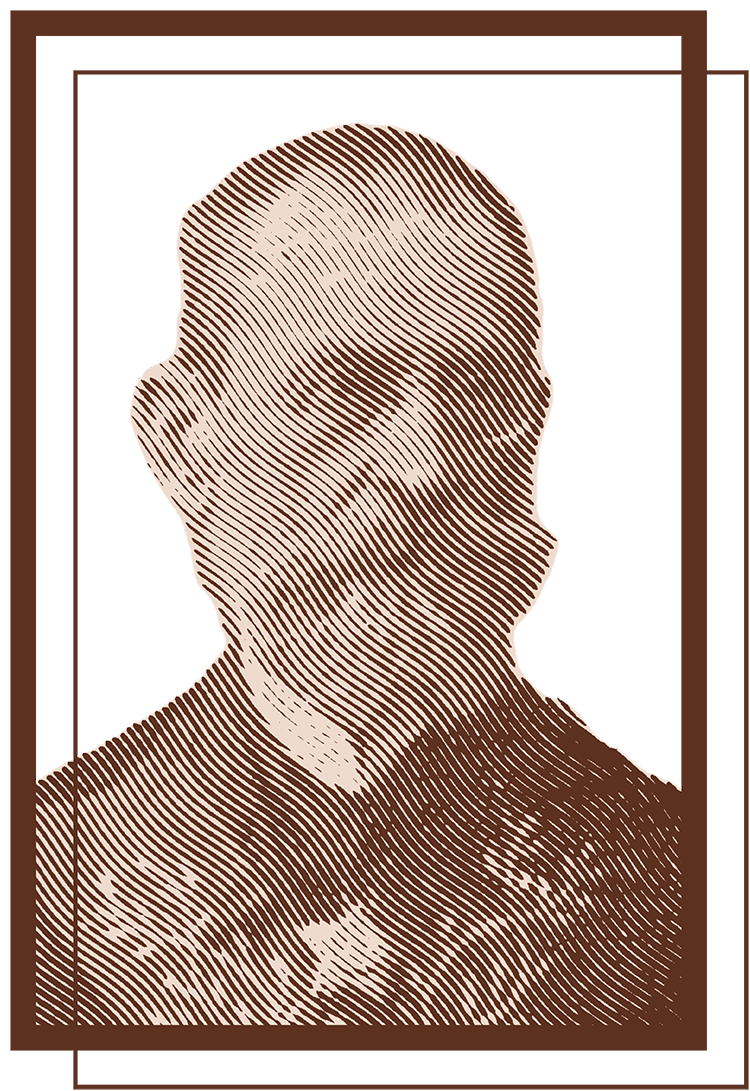
He was born on February 15, 1837, in Bucharest. After 2 years of military school, he received in 1863 the rank of second lieutenant, and on August 30 he was appointed an officer in the 7th Infantry Regiment. On May 10, 1866, he was promoted to lieutenant, and two years later (1868) he was appointed company commander, and on March 10, 1871, he was promoted to captain. He married in 1869. While fighting in the Romanian War of Independence, in the campaigns of 1877-1878, he was injured in Grivița on September 13, 1877.
Read more
His injuries will affect his military career. He was decorated with Romanian orders and medals, including the "Military Virtue" Medal for courage and service in the successive battles dated August 27, 30, 31 and September 1877 in Bulgaria, and in 1884 with the "Honorary gold medal for 25 years of military service”. On October 20, 1884, at the age of only 47, he resigned from the army and retired to Bucharest. One year later, on July 1, 1885, he is recorded "into a position of reform for incurable infirmities acquired during the war of 1877-1878," with all due rights. On May 10, 1912, he was promoted to retired major. He passed to the Eternal Orient in 1918 and was buried in the Bellu Civil Cemetery.
Constantin Moroiu is the founder and the first Grand Master of the National Grand Lodge of Romania. His brother, George Moroiu, was a Freemason, and his daughters, Maria and Elena Moroiu, were initiated into the Steaua Sudului Adoption Lodge in Mangalia (1883). Moroiu was initiated into the Wise Men of Heliopolis Lodge on June 9/21, 1874, and received the rank of Master on June 12/24, 1875. He reactivated the Steaua Dunării Lodge and, on September 28, 1878, addressed the Grand Lusitanian Orient, who issued him the Patent no. 125, on January 15, 1879 (Estrela del Danubio).
He holds the position of Worshipful Master of this Lodge between 1878-1880. In 1879 he addressed the Grand Orient of Romania, to transfer the Lodge under its Obedience, but he was refused. He resumed his connections with the Wise Men of Heliopolis Lodge, in which he was elected dignitary and Warrant of Amity. On March 27, 1880, he was accused of "occupying" without right the name of the Steaua Dunării Lodge, founded in 1856. In May 1880, the Wise Men of Heliopolis Lodge informed him of his exclusion, but in the same month Moroiu obtained the 31st degree and was elected Grand Sage of the Steaua Dunării Chapter.
On September 8, 1880, he establishes the Grand National Lodge of Romania, with the contribution of the Brethren from the Steaua Dunării and Ilfovul Lodge and Steaua Dunării Chapter. Until 1911 he was Grand Master and Sovereign Grand Commander. In 1881 he founded the Supreme Council of Primitive Ancient Rite of Memphis and the Supreme Council for Romania, and on November 22, 1882, the Grand Chapter Royal Arch. He is also on the Chart of Honor of the Martinist Order (1899). He establishes links with the Supreme Councils of Europe, is the Warrant of Amity for many Grand Lodges and Supreme Councils, Grand Honorary Master of the Supreme Grand Council of several countries in Europe and America.
In 1884 he founded the Sons of Romania Lodge in Brussels. In 1904 he participated in the Masonic Congress in Brussels, where he supported the issue of Romanians in Macedonia. In 1911 he divided the Grand Lodge into two sections, remaining "Sovereign Pontiff". During the First World War, he took measures to support the families of those on the front and of war widows.
JANUARY 25, 1895 - OCTOBER 14, 1950, PORTUGAL
Ioan Pangal
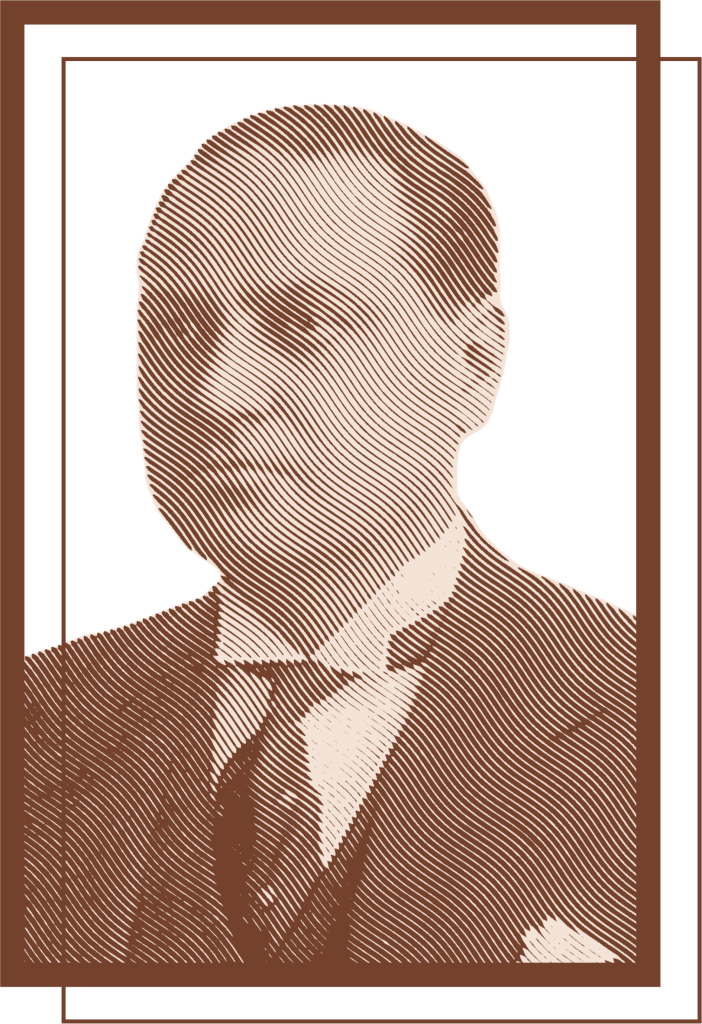
Publicist, politician, diplomat. He pursued an university education in France and became a doctor of law at the University of Iași. Adherent to Romania's entry into the First World War alongside the Allies. Secretary of the National Council for the Union of Romanians in Paris (1918), political director of the newspaper La Roumanie. He was decorated with the Legion of Honor in the rank of Knight (France) and Commander of the Order of St. Stanislas (Russia).
Deputy in the Romanian Parliament (1927-1928, 1931-1932), Under-Secretary of State for Press and Information, under the Presidency of the Council of Ministers (1931) and the Ministry of Foreign Affairs (1931-1932), Romania’s Envoy Extraordinary and Minister Plenipotentiary to Spain (1938-1939) and to Portugal (1939-1940). Devoted to King Carol II, in 1940 he sought exile and settled in Portugal. In 1948, the communist government revoked his Romanian citizenship.
The place of his initiation into Freemasonry is still subject to historical debate. He was raised to 33rd degree in 1921 by the envoy of the Supreme Council of France, Jean Pélissier, along with the recognition and regularization of Romanian Freemasonry by the Grand Orient of France. In 1922, together with Mihail Noradunghian, he “reawakened” Freemasonry with the consent of King Ferdinand, the condition set by the king being that Romanian Freemasonry be of Scottish Rite. Worshipful Master of the United Romania Lodge in 1922 and of the Patria Lodge (1923, 1925).
Sovereign Grand Commander of the 33° Supreme Council of Romania (1922-1937, 1944-1948) and Grand Master of the National Grand Lodge of Romania (1928-1929). In 1923 he obtained the recognition of the 33° Supreme Council of Romania by the Supreme Mother Council of the World, then with the support of Prince George Valentin Bibescu, that of the Grand United Lodge of England.
In 1937, he was part of the delegation of the Romanian National Masonry of Ancient and Accepted Scottish Rite at the solemn meeting at the Patriarchate Palace, where the self-dissolution of Freemasonry in Romania was confirmed, after the discussion he had with King Carol II.
He tried to return to the country in 1944 to revive Freemasonry. He was Worshipful Master of the United Romania Lodge (La Roumanie Unie) in Paris, in Obedience to the Grand Lodge of France, under number 717. In 1945 he was on the list of Freemasons drawn up by the State Security (no. 924): "Pangal, N∴G∴L∴R∴, Most Puissant Sovereign”. He passed to the Eternal Orient in 1950.
JUNE 29, 1819 - NOVEMBER 29, 1852, PALERMO
Nicolae Bălcescu
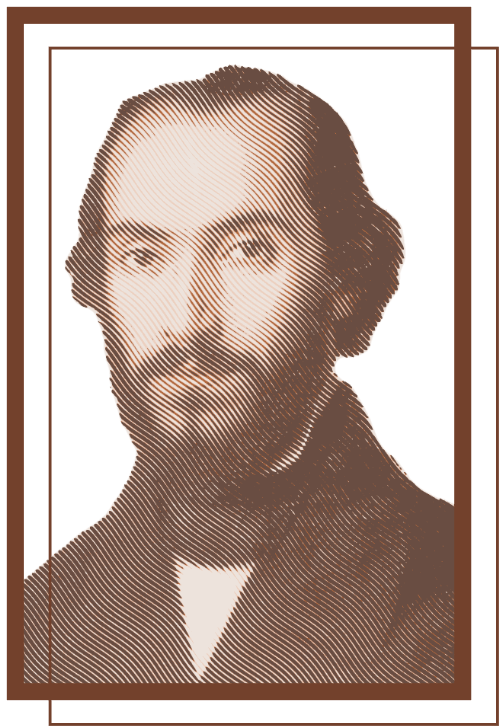
Historian, writer, revolutionary patriot. He attended St. Sava College in Bucharest, with Florian Aaron and Ion Heliade Rădulescu as teachers. Here he met Ion Ghica, with whom he will form a beautiful friendship.
He could not study abroad due to his precarious financial situation. In 1838 he became a junker in the young Romanian army. He was arrested along with Dumitru Filipescu, Eftimie Murgu and Cezar Bolliac, all Freemasons, in October 1840 on charges of conspiracy against Prince Alexandru Ioan Ghica.
Considered a minor (1821 was the year ofbirth on his birth certificate), he was sentenced to 3 years in prison. He was released in 1842.
Founder of the secret, paramasonic society Frăția (1843), together with Ion Ghica and Christian Tell. He played a very important role in the revolution of 1848 in Wallachia and was part of the interim Government. After the revolution he sought exile and was one of the few revolutionaries who were definitively denied return to the country.
Sick with phthisis, he remained in Paris for a while, then settled in Palermo, hoping for a cure (1852). His historical work is impressive. The last work, "Romanians under Mihai Voevod Viteazul", will be published posthumously by Alexandru Odobescu.
As a Freemason, Nicolae Bălcescu is mentioned as "Worshipful - Bucharest - 1847", by I.T. Ulic in the History of Freemasonry, which he wrote in 1932, as well as in articles published in the magazine Paza (1930).
In other sources he is identified as the "probable" Worshipful of the Dreptate-Frăție Lodge. He is mentioned as being initiated into the Athenée des étrangers Lodge in Paris, without further details in The Masonic Philatelist (1988, New York) and by Gderard Serbanesco. He passed to the Eternal Orient on November 29, 1852 in Palermo, where his body was laid to rest in a mass grave in the Capuchin Cemetery.
APRIL 8, 1828 - AUGUST 24, 1884, BUCHAREST
Carol Davila
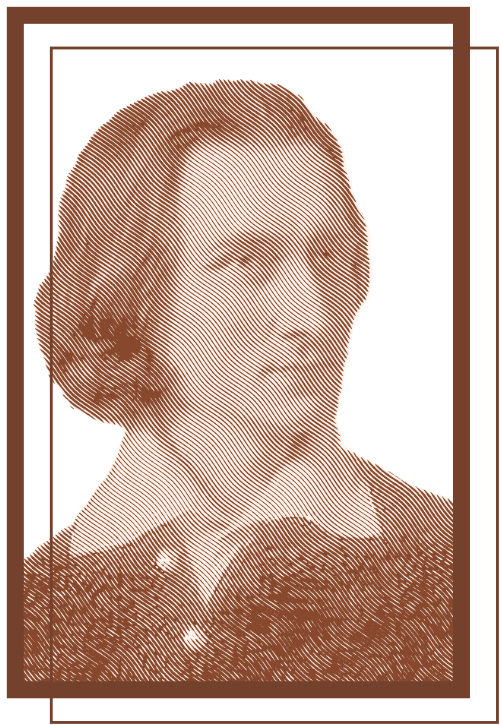
His full name is Carlo Antonio Francesco d’Avila. Physician and pharmacist born in Italy and naturalized Romanian. He studied medicine in Paris. On March 13, 1853, at the request of Mr. Barbu Știrbei, he came to Bucharest to organize the Romanian medical service, receiving the rank of major and will remain here until the end of his life. He acquired Romanian citizenship on May 31, 1868.
In 1855 he founded a School of Feldshers, a Secondary School of Surgery, which he transformed in 1557 with the help of N. Kretzulescu, into the National School of Medicine and Pharmacy (in 1869 it became the Faculty of Medicine).
He is the founder of the Botanical Garden in Bucharest. With the pharmacist Hepites, he organized the veterinary and pharmaceutical education, then founded several societies, including the "Medical Society" (1857), the "Red Cross Society" (1876) and a number of specialized journals.
Initiates the system of free hospital consultations for the poor, the institutionalization of people with disabilities, the establishment of ambulance service and military trains.
In 1860, he was promoted to general and appointed chief physician of the Romanian army. He took an active part in the War of Independence of 1877-1878. He has been elected posthumously member of the Romanian Academy (2003).
In 1872, he held the office of Junior Warden in the Egalitatea Lodge in Bucharest. He was a member of the Înțelepții din Heliopolis Lodge, Orient Bucharest, since May 5, 1874. He will be elected Worshipful Master "titular" on June 5.
Representative of the Romanian Freemasonry at the Convention of the Grand Orient of France on September 14, 1874, the first representing Romanian Freemason in Paris. At the founding of the Grand Romanian Orient, on May 7, 1879, Dr. Carol Davilla was elected Senior Grand Warden and Deputy Grand Master. He passed to the Eternal Orient in 1884.
JUNE 29, 1837 - JUNE 19, 1919, IAȘI
Petre P. Carp
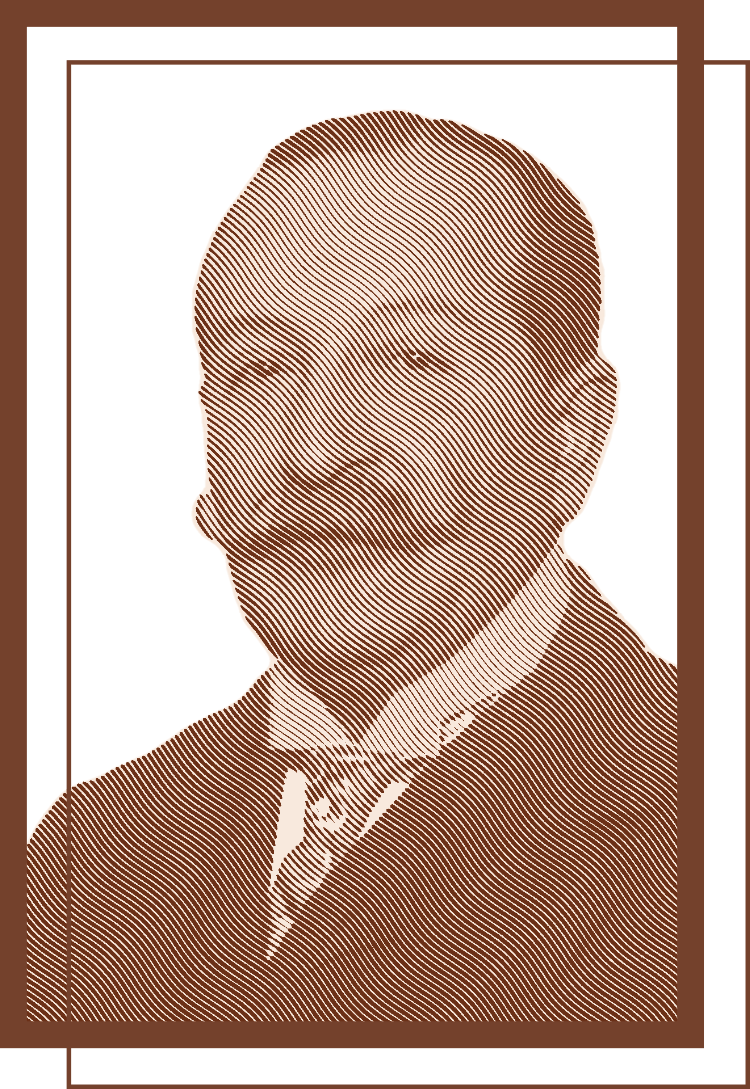
Literary critic and translator, politician, Prime Minister of Romania, prominent member of the Conservative Party. He was sent to Berlin as a child (1850), where he studied at the ”Französisches Gymnasium”. In 1858, he completed his baccalaureate and enrolled at the Faculty of Law and Political Science, University of Bonn.
He returned to Iași and, in the spring of 1864, contributed to the founding of the "Junimea" Society. Intimate Secretary of the Royal Lieutenant on February 11, 1866, after the abdication of Al. I. Cuza, he was later appointed secretary of the Romanian Diplomatic Agency in Paris (1867).
He has been elected several times deputy and senator in the Romanian Parliament, he has held political positions in the governments that succeeded in the country’s leadership during Carol I: Minister of Foreign Affairs, Minister of Cults and Public Instruction, Minister of Agriculture, Industry, Trade and Domains, Minister of Finance. He has been twice president of the Council of Ministers, diplomatic agent in Vienna, Berlin and Rome, extraordinary envoy and minister plenipotentiary of Romania in Vienna.
In the Crown Councils of 1914 and 1916, he was, together with King Carol I, a supporter of Romania's entry into the war with the Central Powers.
He was initiated into Freemasonry on October 21, 1867, in the Steaua României Lodge (Etoile de Roumanie) in Iași, and on November 19, the same year, in the degree of Fellow Craft. In 1868 he was transferred to found another Lodge.
He passed to the Eternal Orient on June 19, 1919, being buried in a marble sarcophagus, in the family mausoleum in the park of the Țibănești Mansion.
NOVEMBER 5, 1890 - NOVEMBER 7, 1957, RÂMNICU SĂRAT
Ion Lugoșianu
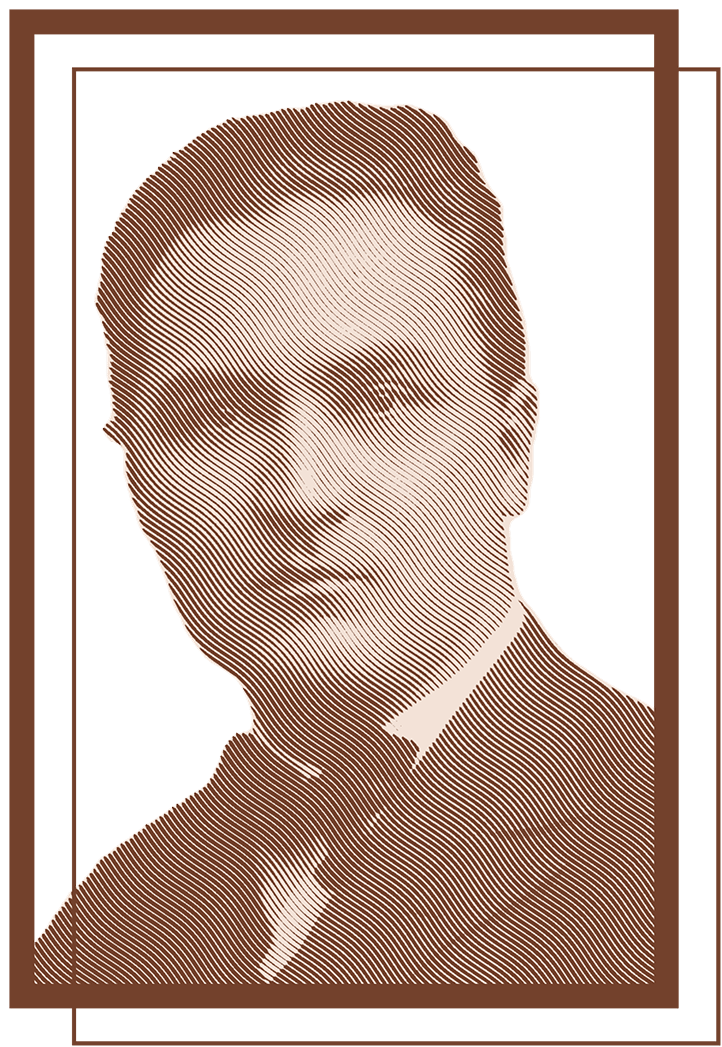
Legal consultant and political science graduate, lawyer and university professor, politician and diplomat, journalist. He attended the Faculty of Law and the School of Political Science in Paris. Technical Adviser to the Romanian Delegation to the Paris Peace Conference (1919-1921), Chief of Staff to Prime Minister Alexandru Vaida Voevod between 1919 and 1920 and Secretary to the Romanian Delegation to the London Peace Conference.
In 1920, he was a government commissioner in the U.S. and Canada, in charge of organizing consular services and studying the Romanian colonies in those countries. Member of the National Peasant Party, close collaborator of Iuliu Maniu. He was the Minister of Public Instruction and the Minister of Industry and Commerce. Delegate to the League of Nations in Geneva and Minister Plenipotentiary to the Vatican (1933-1937). Parliament deputy in several legislatures.
Arrested in 1949 and sentenced to forced labor for life, by sentence no. 1067/50 of the Bucharest Military Tribunal, for “high treason crime”. He went through the M.A.I. detention center, the Văcăreşti prison hospital and the Jilava, Aiud, Piteşti and Gherla penitentiaries. He died on November 7, 1957 in the Râmnicu Sărat penitentiary, due to a so-called "cardiovascular collapse".
Based on the information provided by the C.N.S.A.S., documents were identified proving that he died in Râmnicu Sărat, during the mandate of Al. Vişinescu. His son Ioan, arrested in 1958 and sentenced to death for "acts of terror", was executed in the Jilava penitentiary on December 5, 1958.
He was initiated into the degree of Apprentice in Paris, in the Ernest Renan Lodge on November 18, 1921, recommended by Caius Brediceanu and Traian Vuia. He did not obtain the degrees of Companion and Master.
He was deregistered on December 17, 1925, for non-payment of metals. In the same year, 1925, he was on the list of members ("Leaders") of the Grand Orient of Romania: "I. Lugoșianu (Romanian)”. He is mentioned in the Freemason List and in a 1945 Security file as a member of the Grand Orient of France. According to the Criminal Record, he passed to the Eternal Orient on November 7, 1957, in the Râmnicu Sărat penitentiary.
SEPTEMBER 6, 1817 - JUNE 20, 1891, PARIS
Mihail Kogălniceanu
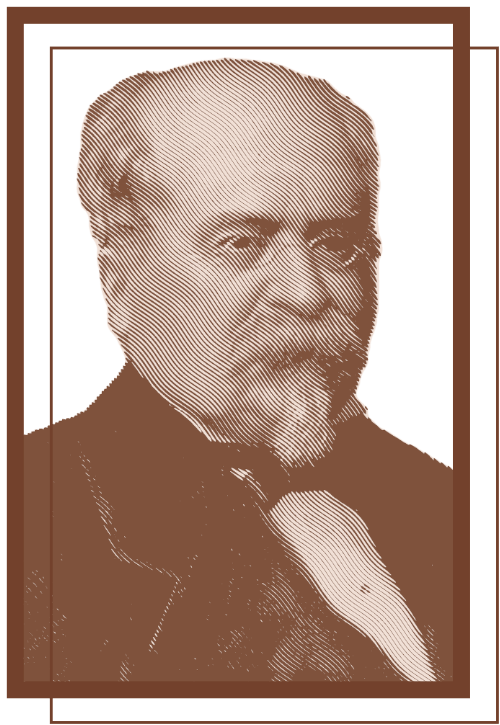
Politician, minister and prime minister, journalist and historian. He studies in Iasi, Luneville and Berlin. Professor at the Mihăilean Academy in Iași, in 1843. He edited a series of magazines, including ”Arhiva Românească” (Romanian Archive) and ”Dacia Literară” (Literary Dacia).
Member of the Literary Society of Bucharest (1844). During his trip to Vienna as a secret representative of the political opposition in Moldavia, in order to try to discuss the dethronement of Sturdza, his passport was suspended.
Imprisoned for a short time, he returned to the country and, in February 1844, met in Bucharest with Ion Ghica, Bălcescu and C.A. Rosetti, members of the secret organization ”Frăția” (Brotherhood). He joined the Society of Romanian Students in Paris (1845).
He held the position of director of the National Theater in Iași, publishing several works together with Vasile Alecsandri and Ion Ghica.
He participated in the 1848 revolution in Moldavia, after which he took refuge in Cernăuți, becoming a member and main ideologue of the Central Moldavian Revolutionary Committee in exile. Draws up the ”Dorințele partied naționale din Moldova” (Wishes of the national party of Moldavia).
Member of the Central Committee of the Union in Iasi, he was elected to the Ad-hoc Divan and, in 1858, to the Elective Assembly of Moldavia.
Member of the Central Commission in Focșani, Prime Minister during the reign of Alexandru Ioan Cuza implements modernizing reforms. Minister of Foreign Affairs and Interior, Extraordinary Envoy and Minister Plenipotentiary of Romania in Paris, proclaims State Independence on May 9, 1877. full Member (1868), Vice President (1886-1887) and President (1887-1890) of the Romanian Academy.
As a Freemason, he is mentioned as the "Worshipful" of a Lodge in Bucharest in 1844, probably during the period when he carried out an intense political activity in Bucharest and met with members of the organization ”Frăția” (Brotherhood). He passed to the Eternal Orient in 1891, in Paris.
AUGUST 17, 1872 - SEPTEMBER 3, 1950, BUCHAREST
Traian Vuia
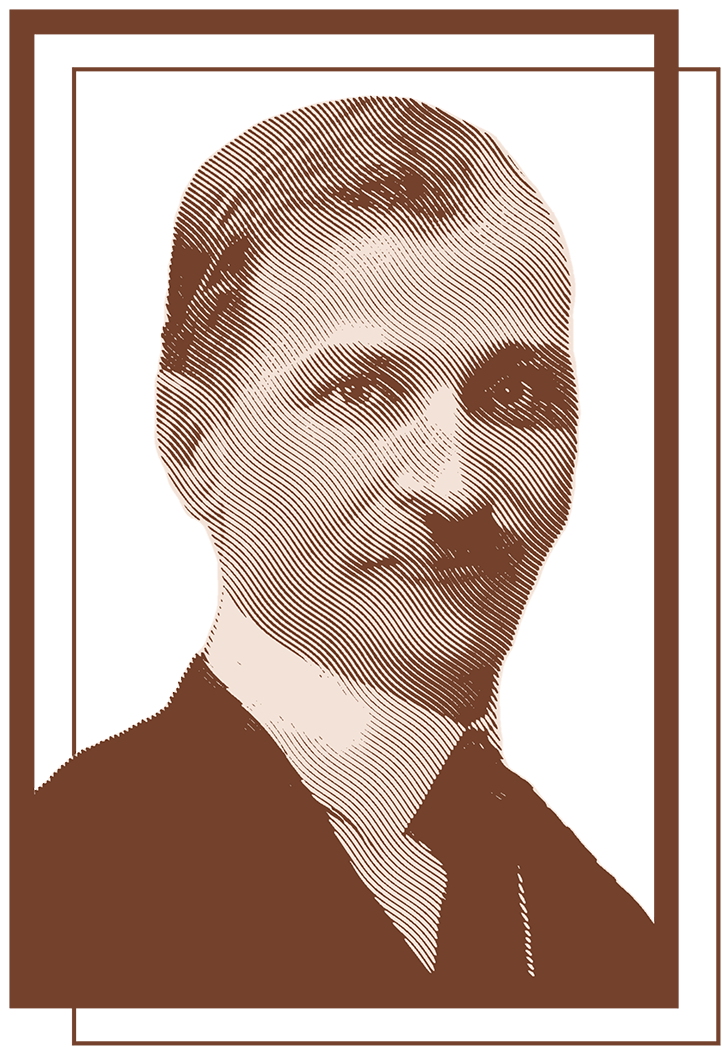
Engineer, aircraft manufacturer, inventor and lawyer, promoter of the Union of 1918. In 1892 he left for Budapest and attended for a year the courses of the Polytechnic University, mechanical department, night school. He obtained a PhD in law with the thesis "Militarism and industrialism, the status and contractus regime" (Magna cum laudae, 1901).
He continues to study human flight and begins building the first aircraft. Financial shortcomings prevented him from completing his project and he decided to go to Paris (1902). Vuia registered the patent "airplane-car" and the aircraft was ready in 1905. On March 18, 1906, at Montesson, near Paris, "Vuia I" made the first flight, over a distance of 12 meters.
At Vuia's initiative, on April 30, 1918, the "National Committee of Romanians in Transylvania" was established in Paris, which campaigned for the union with Romania, but will be very critical of the way in which the Union was achieved.
Member of the Commission of Romanian Experts at the Paris Peace Conference, in 1919-1920.
During World War II he was part of the French resistance movement, being also president of the first legal committee of the "Romanian National Front". Honorary member of the Romanian Academy, on May 27, 1946, a title that was revoked, but was rehabilitated post-mortem. In 1946, Vuia suffered a stroke with left hemiparesis.
Because he was poor, Petre Ciolan, a Freemason member of the Ernest Renan Lodge in Paris as well, took care of him at his home.
He was initiated into the Ernest Renan Lodge in Paris on August 4, 1919. On September 20, the same year, he participated as a special guest at the closing meeting of the annual Convention of the Grand Orient of France.
On January 23, 1920, he received the rank of Companion and Master in the Ernest Renan Lodge as well, then the 18th degree in the Chapter l’Effort. He is a founding member of the Eole Lodge in Paris. Deregistered from the Ernest Renan Lodge on December 17, 1931, in 1937 he is mentioned as a member of a Lodge in the Orient of Arad. He passed to the Eternal Orient in 1950, in a nursing home in Bucharest, being buried in Bellu Cemetery.
FEBRUARY 27, 1872 - MARCH 19, 1950, SIBIU
Alexandru Vaida Voevod
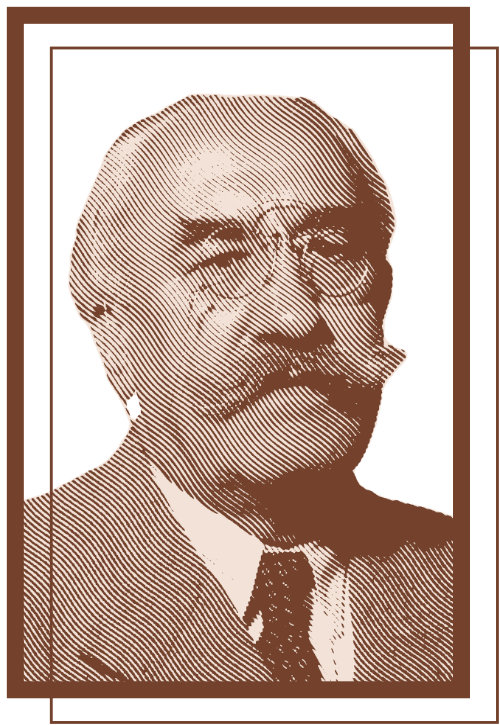
Physician, publicist, politician, prominent leader of the Romanian National Party in Transylvania and of the National Peasant Party, for whose founding he campaigned. In 1899, after completing his medical studies and obtaining his PhD, he worked as a balneologist in Karlsbad (Karlovy-Vary), also practicing general medicine.
He made his political debut as a staunch supporter of the national rights of Transylvanian Romanians. On December 1, 1918, he participated in the Great National Assembly in Alba Iulia and was given the task of compiling the list of members of the Grand Council. He was part of the delegation that, together with Vasile Goldiș, bishops Iuliu Hossu and Miron Cristea, brought the Resolution of the Union to King Ferdinand I to be ratified. He served for three mandates as President of the Council of Ministers and successively led the Romanian Ministries of Interior and Foreign Affairs, Minister of Labor, Health and Welfare, Minister of Industry and Trade, State Secretary Minister.
In 1940, after signing the Second Vienna Award, he took refuge in Sibiu. On March 24, 1945, he was arrested by the communist authorities and investigated. Released after a few months, he was kept under surveillance, with in-house quarters in his residence in Sibiu. He passed to the Eternal Orient in 1950, being secretly buried in the basement of a Catholic chapel in Sibiu. On October 8, 1991, Alexandru Vaida Voevod was reburied in the small cemetery of Brazi Church.
He was initiated into the Ernest Renan Lodge in Paris on August 4, 1919, and received the rank of Companion and Master on January 23, 1920. On September 20, the same year, he participated as a special guest at the closing meeting of the annual Convention of the Grand Orient of France. In the Yearbook of Freemasonry of 1923 in Bern, he is mentioned as Deputy Grand Orator of the Grand Lodge led by Ioan Pangal, and on June 21, 1923, he is proclaimed 33o Emeritus of the Supreme Council, along with Pantelimon Halipa. In 1925, he is a member of the Grand Orient of Romania: “Dr. Al. Vaida Voevod, former Prime Minister and current Minister of the Interior".
On March 22, 1929, he was still on the list of Grand Officers and Dignitaries of the 33rd Supreme Council of the Ancient and Accepted Scottish Rite. His name is included on the list of Freemasons and in a file from 1945, at no. 321: “Vaida Voevod, Politician, M.O. Paris". He was deregistered from the Ernest Renan Lodge in Paris on December 17, 1931.
JULY 2, 1868 - AUGUST 15, 1932, BRAN
Traian Moșoiu
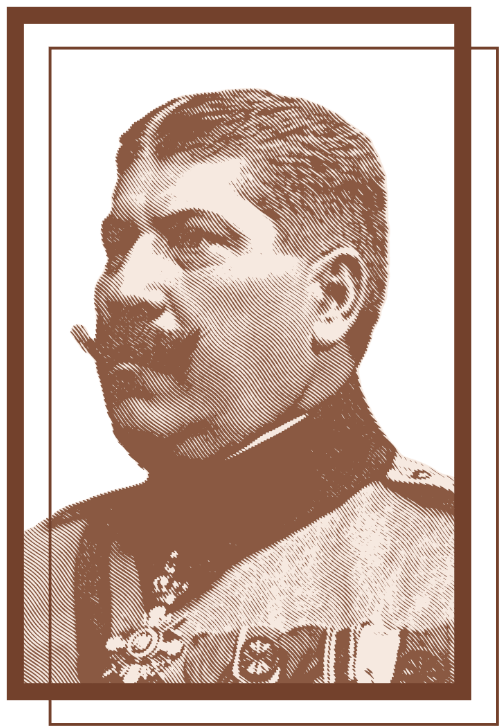
General and politician, he made a remarkable contribution to World War I and to the consolidation of the Great Union in 1918. He attended the “Wiener Neustadt” military school, graduated on June 1, 1889. He remained a second lieutenant in the Austrian-Hungarian army, from which he resigned on July 15, 1891 and crosses the border to Romania. On April 1, 1893, he was taken into the records of the Romanian army. As a divisional general in April 1919, he was given command of the “Grupul de armate Nord” (Northern Army Group), which began its military campaign in Hungary. Military governor of Transylvania (1918), of the Romanian garrison in Budapest and military governor of the Hungarian territories from the west of the Tisza River (1919).
Decorated with numerous orders and medals. He was discharged on request in December 1919, and in 1920 entered politics within the National Liberal Party. He held offices of Minister of War in the government of Alexandru Vaida Voievod. He was a law senator, Minister of Communications (1922) and Minister of Public Works (1923-1926), until he resigned from the entire Liberal cabinet chaired by Ion I. C. Brătianu.
His Masonic activity begins after his discharge. He is mentioned as mason also by Al. Vaida Voevod in his memoirs. In 1926, Traian Moșoiu was among the "Grand Governors" of the 33rd Supreme Council of the A∴A∴S∴R∴ from Romania. He was Pro Grand Master of the Grand National Lodge of Romania ("General Moșoiu, former Minister"). His name is on a list of Romanian Freemason officers and generals, published posthumously after 1932 (at no. 97) and in the archives of the Capital Police Headquarters: "Moșoiu Traian, General, deceased, N∴G∴L∴R∴" (at no.75).
In a letter he sent to Ioan Pangal, on August 21, 1930, he signed: "General Moșoiu, 33:., active member of the Supreme Council of Romania and Pro Grand Master of the Grand National Lodge".
In 1929 he participated in the solemn Meeting in which Constantin Argetoianu was proclaimed Grand Patron of the Romanian Masonic Order. Proposed as Warrant of Amity of the Grand Swiss Lodge Alpina next to the Grand National Lodge of Romania (October 26, 1929). He participated in the inauguration of the Masonic Temple in Bucharest, on April 11, 1930 (45 Câmpineanu Street), and on April 26, 1930, in the solemn Meeting to receive Lord Lloyd, viceroy in India and Egypt. He passed to the Eternal Orient on August 15, 1932, and was buried in the Bellu Military Cemetery in Bucharest.